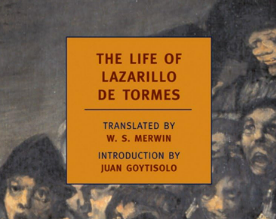Chapter XII: What Happened to Lazaro in an Inn Three Miles outside of Valladolid
byChapter XII: What Happened to Lazaro in an Inn Three Miles outside of Valladolid opens with Lazaro moving away from Madrid with a rare sense of freedom in his step. He carries with him a substantial sum—two hundred silver coins and profits from a sold diamond band—and feels, for once, unburdened by past servitude. On his journey, he finds himself among gypsies and watches their daily rhythms with fascination. Despite their reputation, they exhibit a kind of liberty few others enjoy, wandering without concern for laws or labels. Lazaro marvels at how many of them once held roles in the clergy, only to abandon those callings for lives on the fringes. This observation makes him question the nature of piety and law, and whether rebellion sometimes stems from disappointment rather than malice.
Upon stopping at an inn just outside Valladolid, Lazaro sees familiar faces from Madrid: the older woman he once knew and her young companion Clara. Now accompanied by a youthful gentleman, they appear worn down by travel and limited funds. The three can only manage a plate of pork liver between them, while Lazaro, enjoying better fortune, orders a modest quarter of roasted kid. He tries to keep a low profile, but curiosity stirs as the others eye his meal with increasing interest. Soon, what starts as polite sharing turns into subtle theft as bites are taken without permission but under the illusion of hospitality. Lazaro finds the situation absurd, yet he says nothing, knowing hunger often silences pride. Still, he notes how quickly civility crumbles when survival takes precedence.
The evening’s quiet is broken when two rough-looking men burst into the inn. They claim to be Clara’s brothers and demand her immediate return. A tense standoff forms, but the young gentleman—surprisingly quick and skilled—takes control. With swift movements, he disarms one man and forces the other to surrender. Lazaro, the women, and even the startled innkeeper join the defense, tying the intruders up with whatever was available. The attackers are mistaken for highwaymen, and without time to explain, they are locked away. This sudden turn of events leaves everyone stunned, not least of all Lazaro, who once again finds himself on the fortunate side of chaos.
What follows is both comic and telling. As the two supposed brothers plead their case from behind locked doors, the inn becomes a swirl of accusation and assumption. The young gentleman enjoys newfound respect, Clara blushes with admiration, and Lazaro plays the part of a noble ally. The innkeeper, thrilled by the notion of having apprehended dangerous thieves, decides to summon the local magistrate. By morning, the story has changed: the “rescue” of Clara becomes legend, and the captives are carried off under official guard. Lazaro notes, with his usual dry humor, how truth rarely survives when drama offers a better tale.
Despite the absurdity, the moment reveals deeper truths about appearances and assumptions. Those judged as villains may be kin, and those hailed as heroes may be improvising just like everyone else. Lazaro watches this unfold with a growing awareness that power shifts quickly, often decided not by truth but by boldness and timing. Even as rewards are given and praise flows, he wonders who truly benefited from the skirmish. In the end, the innkeepers, the young man, and even Clara seem to gain something, whether reputation, safety, or affection. Lazaro, as always, gains only understanding—and perhaps, a fuller belly than most.
These events reflect more than just coincidence; they mirror the unpredictable nature of Lazaro’s life. His journey has shown him that control often comes not from strength but from quick thinking and the willingness to play along with shifting narratives. He survives not by being the strongest, but by blending in, stepping forward when needed, and retreating when wise. The boundaries between truth and illusion, virtue and vice, constantly shift in his world. Yet Lazaro continues on, observing, learning, and adapting—not out of ambition, but because survival demands it. Through his eyes, readers glimpse a society where masks are worn not just for deception, but for protection and possibility.

